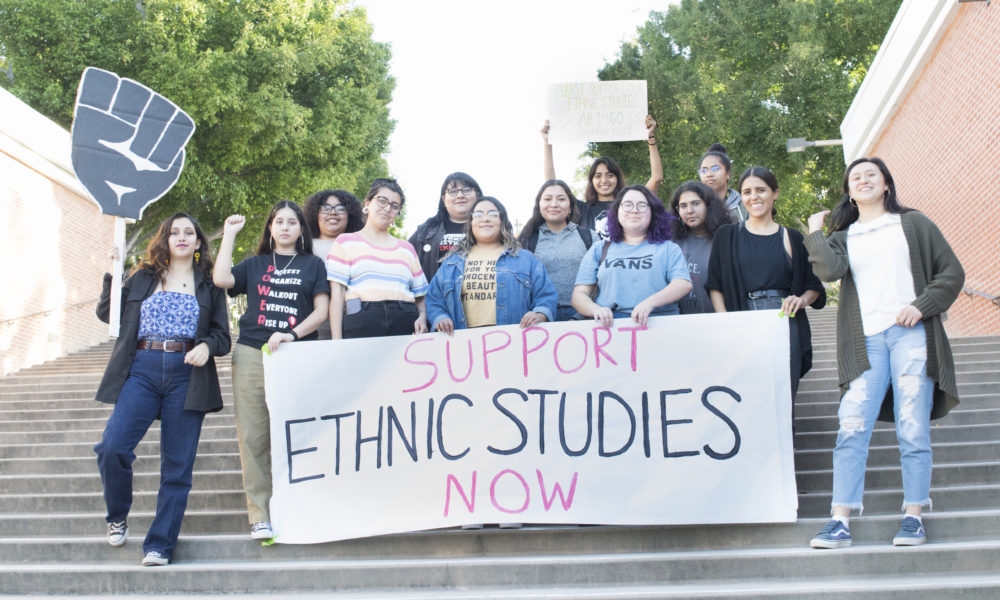The Associated Senate Inc. senate chambers, usually quiet and sparsely attended, were uncharacteristically lively Wednesday.
Student activists spilled out into the courtyard, carrying signs emblazoned with slogans like “support ethnic studies now” and “No barriers at the Beach.” Before the meeting started, 23 students signed up for the 15 public comment portion leaving each speaker with a scant 40 seconds to express their concerns.
They made the most of their time.
Senators were brutally rebuked, passionate speeches were delivered, quotes from civil rights leaders were read and more than a few tears were shed.
Although I sympathize with the senators who voted against the resolution, even if I think it was the wrong thing to do. Many who voted against the resolution did so because they said that their constituents opposed these classes being mandatory.
I don’t believe their votes were born out of any malice to the program, but that they felt trapped between their constituents and the right thing to do.
That being said, where were these constituents? Of the multitude of protestors and student activists, not one spoke out against mandating ethnic studies. If this is so important to these constituents they should have been there.
Behind all the drama is the beating heart of the issue: whether the centuries of struggles of people of color, their triumphs and tragedies, their subjection and subsequent fights for freedom, should be required reading for college students.
One protester remarked that in our history classes that the most we hear about people of color is the warped, safe-for-white-American consumption, overview of Martin Luther King Jr.
Although this is a slight exaggeration, it is true that most classes depict an America with all the diversity of a Republican National Convention.
In many classes, slavery is a statistic and the genocide of indigenous peoples is a play performed by kindergarteners.
Historical atrocities like the persecution of Chinese Americans during the gold rush and the trail of tears are sanitized or ignored in their entirety.
In one district in Texas, for 10 years textbooks minimized the horrors of slavery saying things like “there were also kind and generous [slave] owners.”
Other texts shy away from the word slave as a whole, with one text infamously using the word “worker” instead of slave.
In high school, I was a (relatively) attentive student, and even took AP U.S. history, but it wasn’t until I took my first ethnic studies course that I ever heard of redlining, or the racial implications of selective incorporation.
That is utterly unacceptable. Making ethnic studies mandatory won’t fix everything, but it’s a critical step in fixing the skewed narrative surrounding the United States.
The way we approach history and culture in education needs to be rebuilt from the ground up. But until these sweeping changes are implemented, which will take time, we need to do whatever we can.




